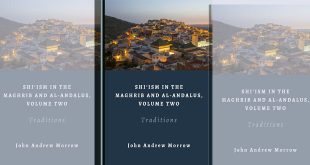Some people questioned the possibility of breaking Sawm (fasting) in the month of Ramadan because of high temperature and is it permissible, which prompted the Egyptian media to resort to the House of Ifta of Egypt (Dār al-Iftā’ al-Miṣriyyah) and search for fatwa through the official website of the House.
Egypt and a number of Arab countries are exposed to a severe heat wave, reaching a peak of 46 degrees, coinciding with the month of Ramadan.Some people questioned the possibility of breaking Sawm (fasting) in the month of Ramadan because of high temperature and is it permissible, which prompted the Egyptian media to resort to the House of Ifta of Egypt (Dār al-Iftā’ al-Miṣriyyah) and search for fatwa through the official website of the House.
Al-Watan, the Egyptian newspaper pointed out that related to the issue of breaking Sawm in Ramadan, the Egyptian Ifta House through the fatwa of the former Mufti of the house, Ali Jumah Muhammad, declared, “It is permissible to break fasting during the day in Ramadan, provided that the person reckoned among the hard workers such as farmers, porters and builders, the ones who have severe job which is their only source of income.”
On its official website, Dar Al-Iftaa said that through the legitimate orders one of the terms for fasting is having the ability to fast. It means that there would not be any legitimate impediments to fast such as menstruation and puerperal and the sensory ability means the physical capability of the person who is ordered to fast unless he suffers a severe illness that makes him not to be able to fast or he would be very old insomuch that considered as a sick and cannot fast or he would be a traveler which traveling reckons a hardship.
Dar al-Iftaa stated that it is also possible for the Mokalaf[1] who is not able to give up his work during the day in Ramadan because of his need or for the need of his dependents. If Mokalaf cannot postpone his hard work after Ramadan or cannot do it at nights, therefore it is not obligatory to fast in the days of Ramadan, in which he needs to do this hard work, because he needs it for the maintenance of himself or the maintenance of his dependents; such works are like builders and porters and so on, especially those who work in extreme heat, or for long hours.
The Secretary of the Egyptian Ifta House, Majdi Ashour, said that the month of Ramadan is not compensated, especially for those who leave fasting without excuse, but for those who leave it for an excuse, it is permissible; as Allah states in the verse, “but whoever among you is sick or on a journey, then (he shall fast) a (like) number of other days[2]“. He also pointed out that through the meanings of fastingis obligation and hardship on people.
The Secretary of Dar al-Iftaa said that it is not permissible for a person to break fasting during the day in Ramadan, except for those who have a legitimate excuse as a sickness and other cases prescribed by the doctor. Otherwise, it is not permissible for a person to break fasting. We must know that fasting strengthens us and does not weaken us.
———————————————
References
[1]The one who reach a certain age to do all the legitimate obligatories.
[2]Sura Baqra, 184. Shakir translation
 Ijtihad Network Being Wise and Faithful Muslim in the Contemporary World
Ijtihad Network Being Wise and Faithful Muslim in the Contemporary World
